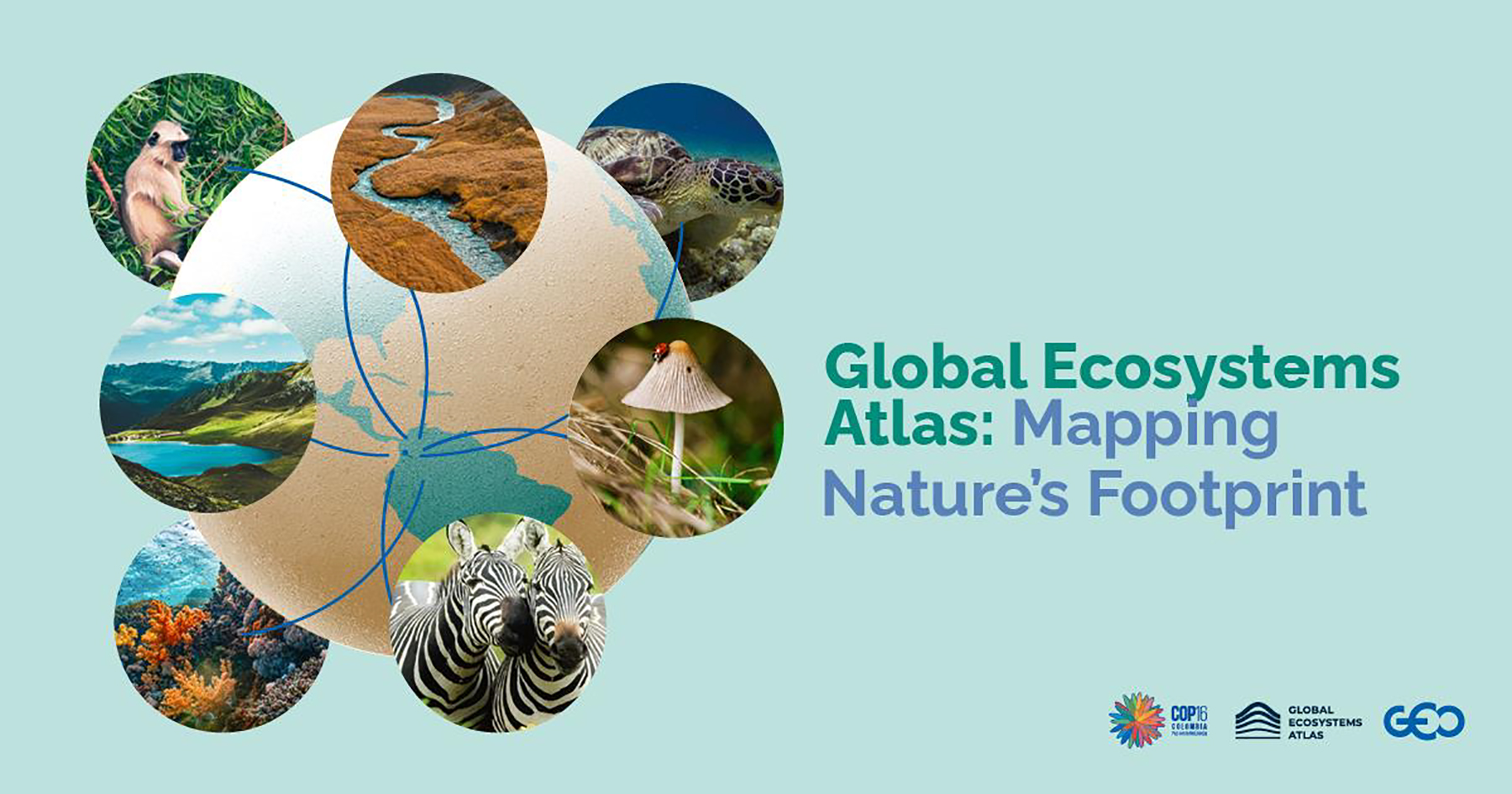Launch event
2024 UN Biodiversity Conference (COP16)
- Home/
- Events/
- 2024 UN Biodiversity Conf... /
- Launch event
Join the Group on Earth Observations and partners at the UN Biodiversity Conference (COP16) in Cali, Colombia, for an official side event to launch the proof-of-concept of the Global Ecosystems Atlas.
30 October
6pm
Cocora Room, Subnational and Local Authorities, Plaza One
Matt Crook mcrook.ext@geosec.org
- Inger Andersen, UN Environment Programme, Executive Director
- Astrid Schomaker, CBD Secretariat, Executive Secretary
- Yana Gevorgyan, GEO Secretariat, Director
- H.E. Tore O. Sandvik, Minister of Climate and Environment, Norway
- H.E. Thoriq Ibrahim, Minister of Climate Change, Environment and Energy, Maldives
- Honourable Narend Singh, Deputy Minister of Forestry, Fisheries and the Environment, South Africa
- Nicholas Murray, Global Ecosystems Atlas, Scientific Lead
- Marco Lambertini, Nature Positive Initiative, Convener & Secretariat Executive Chair
- Ted Schmitt, Ai2, Senior Director of Conservation
- Sean Breyer, Esri, GIS Engineering Director
- Amy Nguyen, writer and researcher

Earth's ecosystems are the foundational systems that sustain all life on Earth – but until now, we’ve lacked information about the distribution and diversity of nearly half of these vital habitats. Three decades after the establishment of the Convention on Biological Diversity, we still don’t know how much of the Earth is covered by tropical rainforests, coral reefs, seagrass or grasslands.
To effectively tackle the multiple crises we face today – from climate change and biodiversity loss, from pollution to land degradation – we need to monitor and measure changes in the distribution of ecosystems using harmonised spatial data.
Responding to these needs, the Group on Earth Observations and partners are pleased to invite you to the unveiling of the groundbreaking Global Ecosystems Atlas initiative.
An essential tool
At its core, the Global Ecosystems Atlas is a pioneering geospatial data product, developed through integration of existing national and global data on ecosystem extent and new maps using high resolution Earth observations.
The Global Ecosystems Atlas will be an essential tool for all signatories to the Convention on Biological Diversity and all stakeholders involved in the global effort to protect and restore our ecosystems.
As a tool grounded in robust scientific process producing high quality trusted spatial data on ecosystems distribution and change, the Atlas will make information and ability to generate analysis accessible to users even with limited technical capacities.
See the Atlas in action
Attendees will have the opportunity to explore the user-centric online platform and see firsthand how this tool can support specific use cases related to GBF implementation.
Representatives from governments, the private sector and academia will discuss practical applications and the broad-ranging benefits of the Global Ecosystems Atlas.
This will be a must-attend event for anyone considering how to future-proof our planet against the pressing challenges of climate change, biodiversity loss, pollution, and land degradation.

